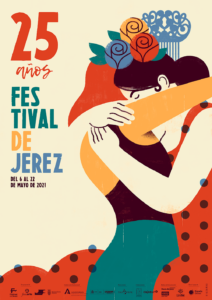XIII Edición Flamenco en Red – 25 FESTIVAL DE JEREZ

CONGRESO MUNDIAL DE FLAMENCO DEL INSTITUTO CERVANTES
FLAMENCO: REFLEXIÓN Y FUTURO
Jerez, 19 de mayo de 2021
- Inauguración
Accede al vídeo aquí
- Conferencia de Cristina Cruces “Los mapas del cuerpo en el arte flamenco“
Se plantearás las siguientes cuestiones: ¿Qué posibilidades tiene el concepto de “corporeidad” para los estudios flamencos? ¿Cómo aplicar las lecturas simbólicas del cuerpo, más allá de la estética? Esta exposición sugiere nuevas “formas de mirar” la cartografía social e historia de los cuerpos flamencos, y propone revisitar la plástica y la producción corporales como expresión de ideas sobre la identidad: la clase social, la etnicidad, el género. A partir de un recorrido por la construcción cultural del cuerpo en el arte flamenco desde el siglo XIX, especialmente en el baile, se analizan y confrontan, desde una perspectiva crítica, las prácticas e imágenes de la tradición y la “quiebra de la representación” con la que nuevas generaciones interpretan la corporeidad contemporánea.
Accede al vídeo aquí
- Conferencia de José Galán “La discapacidad en el flamenco; una verdad encarnada”
Que abordará los orígenes del binomio flamenco-discapacidad a lo largo de la historia y su evolución conceptual hasta llegar a la actualidad, al igual que la inclusión de personas con discapacidad en la escena flamenca como propuesta innovadora de espectáculos integradores. Al finalizar la ponencia, José Galán y Lola García- Baquero llevarán a cabo una acción artística.
Accede al vídeo aquí
- Mesa redonda:
Lola García-Baquero.
Alumna de los talleres de la Asociación e integrante del último espectáculo de la Compañía.
Paco Román.
Alumno de flamenco inclusivo durante una edición del Festival de Jerez.
Accede al vídeo aquí

